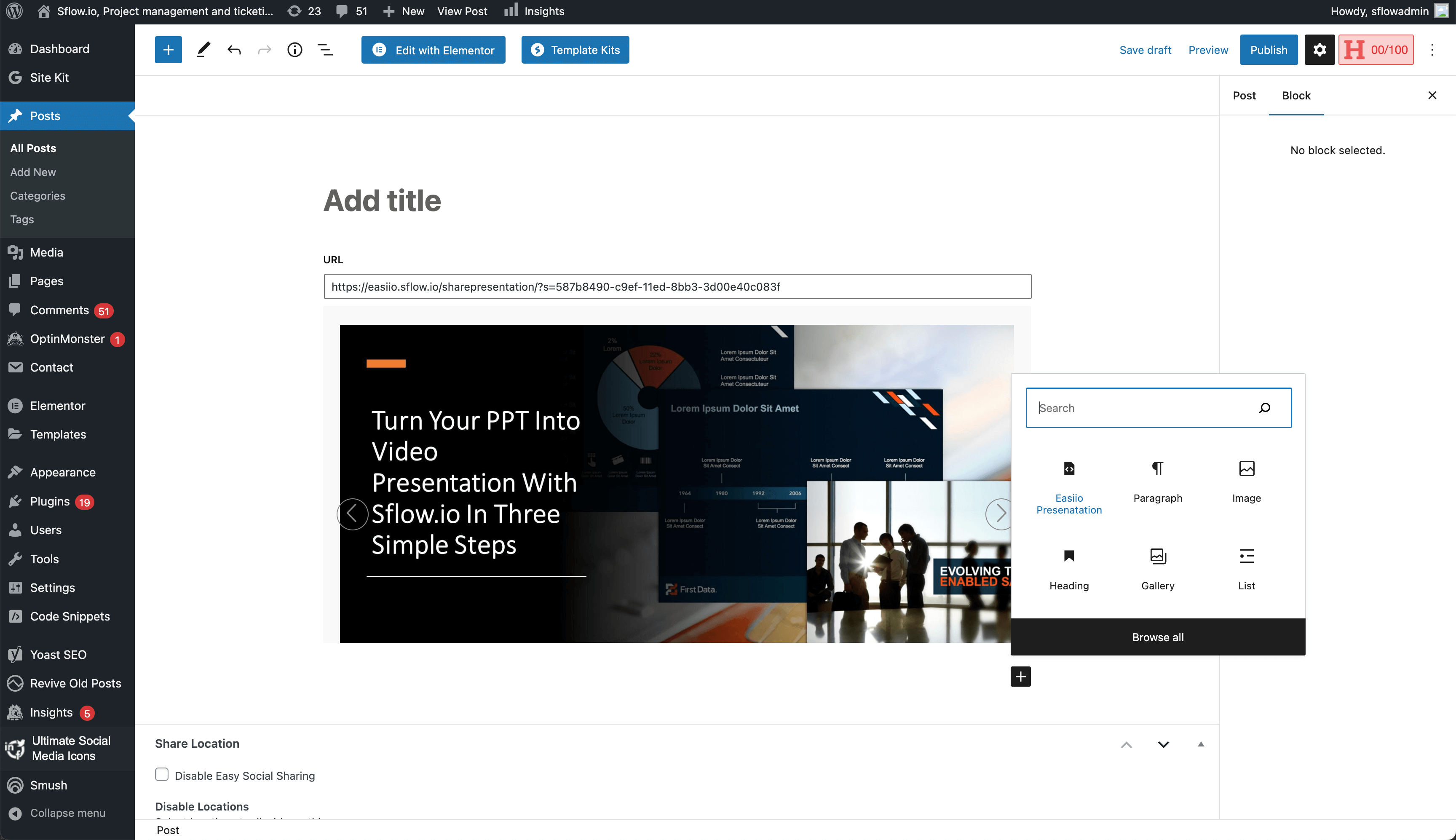

 Sflow
Sflow






WordPress Plugin
The sFlow Video Presentation WordPress Plugin lets you embed video presentations effortlessly on your WordPress website or blog, without worrying about compatibility issues.You can do a search on WordPress Plugin. It's easy to use and integrates smoothly with WordPress, making it perfect for business owners, educators, or anyone who wants to add engaging video content to their website.
 Sflow
Sflow








WordPress Plugin
The sFlow Video Presentation WordPress Plugin lets you embed video presentations effortlessly on your WordPress website or blog, without worrying about compatibility issues.You can do a search on WordPress Plugin. It's easy to use and integrates smoothly with WordPress, making it perfect for business owners, educators, or anyone who wants to add engaging video content to their website.

Welcome to our comprehensive guide on AI data analytics. This page provides valuable insights into the world of AI-powered data analytics and introduces you to Easiio, a provider of innovative AI data analytics solutions designed to improve business efficiency.


Generative AI is being increasingly used in data analytics to create synthetic data that closely resembles real-world data. This technology can help organizations overcome challenges related to data privacy, security, and scarcity by generating large amounts of realistic data for testing and analysis purposes. By using generative AI for data analytics, businesses can improve the accuracy and efficiency of their models, uncover hidden patterns and insights in their data, and make more informed decisions based on a broader and more diverse dataset. Overall, leveraging generative AI in data analytics enables organizations to enhance their data-driven strategies and drive innovation in various industries.
Using generative AI for data analytics is important because it allows businesses to uncover valuable insights and patterns in their data that may not be immediately apparent. Generative AI can help organizations generate synthetic data to fill in gaps or augment existing datasets, leading to more comprehensive and accurate analysis. Additionally, generative AI can assist in creating predictive models and simulations that can help businesses make informed decisions and optimize their operations. Overall, leveraging generative AI for data analytics can enhance the efficiency and effectiveness of data-driven decision-making processes.


sFlow.io is a project management tool that leverages generative AI for data analytics. The advantages of using generative AI for data analytics with sFlow.io include:
1. Improved decision-making: Generative AI can analyze large volumes of data quickly and accurately, providing valuable insights to help project managers make informed decisions.
2. Enhanced efficiency: By automating data analysis processes, generative AI can save time and resources, allowing project managers to focus on strategic tasks and problem-solving.
3. Predictive capabilities: Generative AI can identify patterns and trends in data, enabling project managers to anticipate potential issues and opportunities, leading to more proactive decision-making.


Generative AI has a wide range of application areas in data analytics, offering innovative solutions to complex problems. One key application area is in the field of image and video analysis, where generative AI models can be used to generate realistic images or videos based on limited input data. This can be particularly useful in tasks such as image restoration, super-resolution, and style transfer. Another important application area is in natural language processing, where generative AI models can be used to generate human-like text or speech, enabling applications such as chatbots, language translation, and content creation. Overall, the use of generative AI in data analytics opens up new possibilities for creative and efficient data-driven solutions across various industries. Brief answer: Generative AI for data analytics has diverse application areas including image and video analysis, natural language processing, and more, enabling innovative solutions to complex problems in various industries.

Allows users to ask questions and receive insights in plain language.

Forecasts future trends and scenarios based on historical data.

Presents insights in an easy-to-understand format through interactive dashboards.
By using Your Website Name,
you agree to our Cookie Policy.